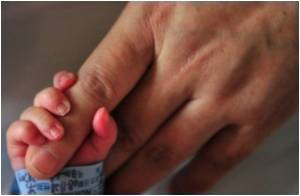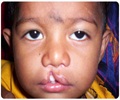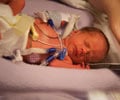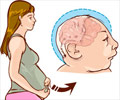Babies born to women who drink heavily during their first trimester of pregnancy are more likely to have birth defects, compared to the babies of mothers who abstained from alcohol

These results fall in line with another recent study, published in the Journal of Epidemiology and Community Health, which found that the 5-year-old children of women who drank lightly during their pregnancy - no more than one or two drinks a week - did not show any evidence of behavioral, emotional or cognitive impairment.
In the new study, researchers from Australia questioned 4,714 women three months after they had given birth about their alcohol intake during each trimester of their pregnancy.
They then categorized each woman's alcohol intake as low, moderate or heavy, based on the average number of drinks they said they consumed a week while they were pregnant. The researchers defined a standard drink as one having about 0.4 ounces (10 grams) of alcohol - about the amount in a bottle of beer, a small glass of wine or one shot of liquor.
Researchers defined women with "low" alcohol consumption as those who drank fewer than seven drinks a week, and no more than two drinks on any day. Women were "moderate" drinkers if they consumed fewer than seven drinks a week, but each drink had more alcohol in it, or if they ever binged during their pregnancy, meaning they drank four or five drinks at once.
Women were considered "heavy" drinkers if they binged once or twice a week.
Advertisement
While drinking during pregnancy should not be encouraged, there is little evidence to suggest that an occasional drink or light drinking by the mother is harmful, the study said. Heavy drinking, however, is associated with serious developmental defects in the foetus.
Advertisement
Source-ANI












